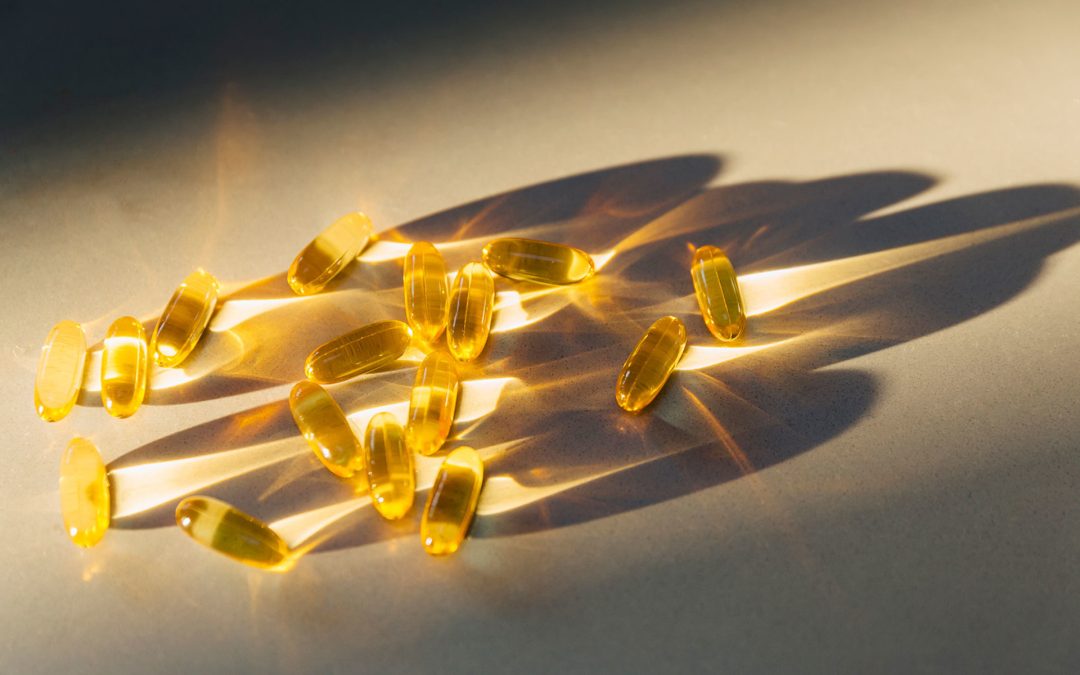Supplements are an incredibly valuable and effective investment in your whole-body health and well-being. That said, investments come at a (literal) cost, so you want to make sure you’re getting your money’s worth.
When it comes to omega-3 supplements, there are a few factors you need to consider to ensure you’re optimizing your fatty acid intake and bioavailability (and reaping all of the incredible benefits!). Taking the right form of omega-3s (and/or buddy nutrients) can make a world of difference—and the key lies in dietary fats.
Taking fats with other fats.
I know, I know—it might seem counterintuitive, but taking your omega-3 supplement with a meal or snack that includes dietary fats (e.g., avocado, olive oil, grass-fed butter, coconut oil, etc.) can help enhance the omega-3s absorption, making more fatty acids available to your body.*
Simply put, “fats like fats,” explains nutrition scientist Ashley Jordan Ferira, Ph.D., RDN. “Consuming fat-soluble nutrients (i.e., a lipid) with other lipids is most beneficial for all fatty things,” she adds.
This is because lipids play the critical role of transporting nutrients and aiding in their absorption in the gut and in cells throughout our body—including dietary fats like omega-3 fatty acids. As it turns out, lipids sometimes even require the assistance of other lipids to optimize their bioavailability.
This is the case with certain forms of omega-3s found in fish oil (i.e., ethyl esters and free fatty acids) commonly used by some supplement brands. In these formulas, without a high-fat meal, the marine omega-3 fatty acids EPA and DHA simply won’t be readily absorbed and enter the broader body for the cardiovascular or central nervous systems to utilize.
“Ethyl ester fish oil products on the market are fine options, but their bioavailability is simply lower. These forms of fish oil taken without a fat (e.g., while fasting) is a lose-lose situation,” says Ferira. “You might as well flush them down the toilet!”
Ferira goes onto explain: “Specifically, ethyl esters are inferior to triglycerides when not consumed with a fat-containing meal. Ethyl esters are missing the glycerol backbone component of triglycerides, so they have to ‘steal’ glycerol backbone from fats in your diet or in circulation.”
For optimal bioavailability (aka, a sound investment) there’s one form of omega-3s that’s sure to be readily available for the body to use: Their triglyceride form.
In case you were wondering, mbg’s omega-3 potency+ has you covered here.
Why mbg uses the triglyceride form of EPA & DHA.
mindbodygreen’s omega-3 potency+ delivers omega-3s in their native triglyceride format—as in, the form that’s found in dietary sources of marine omega-3 fatty acids, like fish.
In other words, this superior form of omega-3s is already bioavailable and ready to go! While we do recommend you take omega-3 potency+ (and any fat-soluble supplement ingredient) with a meal or snack that contains some dietary fat (e.g., a slice of avocado toast or a bulletproof coffee), you don’t have to go out of your way to cook a high-fat meal to make sure you’re reaping the full benefits this omega-3 formula has to offer.
Omega-3 supplements should be taken with a dietary fat to optimize their bioavailability. Some forms of omega-3s (e.g., ethyl esters and free fatty acids) require a high-fat meal to be fully utilized by the body. Translation? If you don’t take certain fish oil supplements with the right foods, you may as well be tossing them down the drain.
mbg’s omega-3 potency+ features 1,500 milligrams of EPA plus DHA in their native fat form (triglycerides) from sustainably sourced anchovies (wild caught, cold water), so you don’t have to obsess over your macronutrients—simply take it with a snack or meal that has some fat (hint: most snacks and meals do!) to ensure your body can optimally absorb and utilize the omega-3s.
For other incredible fish oil formulas, check out mbg’s selects for the best omega-3 supplements on the market here.
If you are pregnant, breastfeeding, or taking medications, consult with your doctor before starting a supplement routine. It is always optimal to consult with a health care provider when considering what supplements are right for you.

